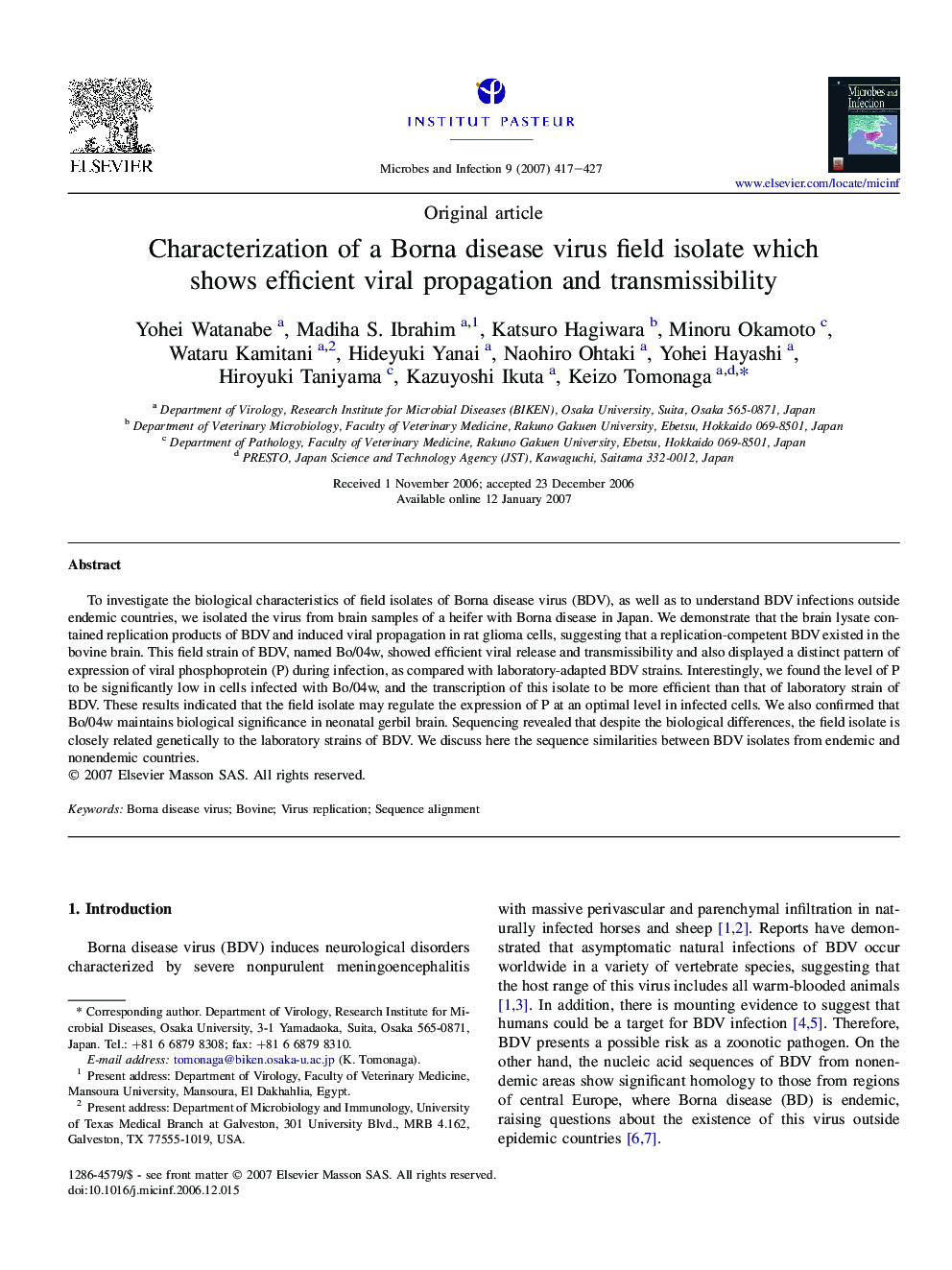| Article ID | Journal | Published Year | Pages | File Type |
|---|---|---|---|---|
| 3415880 | Microbes and Infection | 2007 | 11 Pages |
To investigate the biological characteristics of field isolates of Borna disease virus (BDV), as well as to understand BDV infections outside endemic countries, we isolated the virus from brain samples of a heifer with Borna disease in Japan. We demonstrate that the brain lysate contained replication products of BDV and induced viral propagation in rat glioma cells, suggesting that a replication-competent BDV existed in the bovine brain. This field strain of BDV, named Bo/04w, showed efficient viral release and transmissibility and also displayed a distinct pattern of expression of viral phosphoprotein (P) during infection, as compared with laboratory-adapted BDV strains. Interestingly, we found the level of P to be significantly low in cells infected with Bo/04w, and the transcription of this isolate to be more efficient than that of laboratory strain of BDV. These results indicated that the field isolate may regulate the expression of P at an optimal level in infected cells. We also confirmed that Bo/04w maintains biological significance in neonatal gerbil brain. Sequencing revealed that despite the biological differences, the field isolate is closely related genetically to the laboratory strains of BDV. We discuss here the sequence similarities between BDV isolates from endemic and nonendemic countries.
